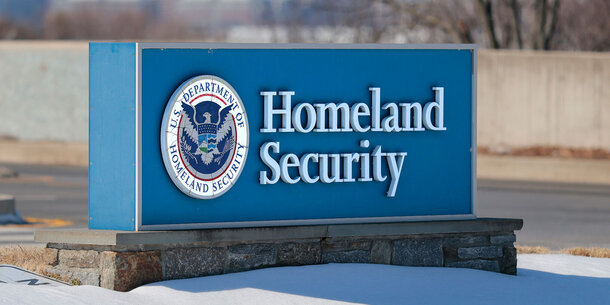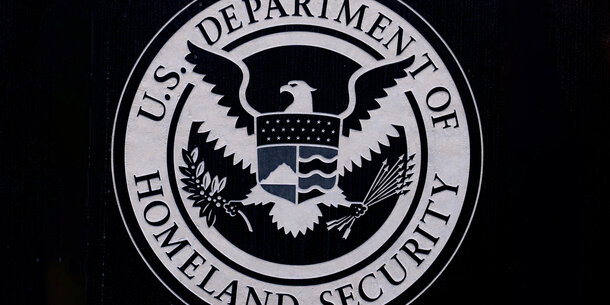On January 27, 2025, the Office of Management and Budget (OMB) issued a memorandum directing federal agencies to “temporarily pause” nearly all federal financial assistance while it reviewed whether the funding aligned with the new administration’s policy preferences. The pause applied to all forms of grants, loans, loan guarantees, and insurance not received directly by individuals, amounting to billions of dollars that Congress had already authorized and appropriated for essential services such as education, health care, and public safety.
Federal agencies, which received notice of the pause less than 24 hours before it went into effect, quickly complied. Within hours, they initiated freezes that indefinitely suspended all payments on a sweeping range of government programs. Even funding not covered by the memo fell victim to agency freezes: State Medicaid payment portals went offline, early education centers could not access Head Start funds, and small businesses lost access to critical grants they had already been awarded.
After multiple lawsuits challenged the government-wide freeze, OMB issued a new directive purporting to rescind the pause. But shortly after OMB issued the new directive, the White House press secretary announced on her official social media account that it was “NOT a rescission of the federal funding freeze.” Many funds remained inaccessible, and the staggering number of programs affected by the freeze entered a state of confusion and uncertainty that continues today.
On January 28, 22 states and the District of Columbia brought one of several legal actions challenging the freeze. The lawsuit, filed against the president and the heads of several federal departments and agencies, argues that their actions to implement OMB’s memo violate both the Administrative Procedure Act (a federal statute that governs how federal agencies must operate) and the Constitution. On March 6, the U.S. District Court for the District of Rhode Island granted the states’ motion for a preliminary injunction, which prohibited the administration from implementing the freeze. The First Circuit Court of Appeals is now considering the administration’s appeal of that order.
A diverse array of amicus briefs — submitted by lawmakers, legal scholars, policy experts, and former executive branch officials from Democratic and Republican administrations — were filed in support of the states. To help sort through the filings, the Brennan Center has prepared this annotated guide summarizing each brief’s most prominent or unique points.
This brief — filed on behalf of 157 members of Congress — explains that the funding freeze is unlawful because Congress, not the president, has exclusive power to appropriate funds and make laws governing their use. The members further warn that the freeze harms not only the people in their districts, but also the legislative process itself. Congress, as they explain, legislates under the presumption that the executive branch will carry out appropriations laws as they are written. When the executive branch violates that expectation by enacting a categorical freeze, the members write, it becomes difficult, if not impossible, for Congress to properly evaluate and enact new appropriations laws in the future. The Brennan Center and the law firm Complex Appellate Litigation Group LLP are co-counsel for this brief.
The Constitutional Accountability Center
This brief from the Constitutional Accountability Center walks through the history and long-standing precedent supporting Congress’s exclusive control over appropriations and spending. It traces the origins of this arrangement as far back as Britain’s Glorious Revolution, when Parliament rejected the monarch’s sweeping assertions of authority over the purse. The Constitutional Accountability Center filed this brief on its own behalf.
Former Executive Branch Officials
This brief — filed by former executive branch officials from the Johnson, Nixon, Reagan, George H.W. Bush, George W. Bush, and Trump administrations — explains that the funding freeze is far from a typical act of a new presidential administration, but rather an extraordinary violation of traditional executive practice. It draws from the officials’ 50-plus years of combined government experience to emphasize that the executive branch has long respected Congress’s constitutional appropriations authority and to warn that the OMB memo undermines this relationship by overriding Congress’s commands. The law firm Holwell Shuster & Goldberg LLP is counsel for this brief.
This brief from Ilya Somin, a legal scholar and B. Kenneth Simon Chair in Constitutional Studies at the Cato Institute, draws on textual, structural, and historical evidence to demonstrate that changes to federal policy cannot be accomplished by allowing the president to unilaterally seize control over federal spending. It further emphasizes the bottom-line risk in allowing the funding freeze to stand: increased concentration of power in the executive branch and the diminished capacity of Congress, the states, and public and private entities to resist presidential abuses of power. The law firm Debevoise & Plimpton LLP is counsel for this brief.
This brief from Samuel Bagenstos, a professor of law and social policy and former OMB general counsel, discusses the federal fiscal framework that reinforces Congress’s exclusive authority over federal spending and appropriations. It provides a detailed overview of the Impoundment Control Act and the Antideficiency Act to explain that any presidential discretion in determining how to carry out Congress’s appropriations laws is subject to limitations that bar the executive from refusing to spend appropriated funds — temporarily or permanently — based on policy disagreements with Congress. Bagenstos filed this brief on his own behalf.
This brief from engineer and scientist Arati Prabhakar — who served as science and technology adviser to the president and director of the White House Office of Science and Technology Policy under President Biden — details the lasting harms that the freeze will have on the efforts of scientific researchers who innovate the nation’s health, security, and economy. It further warns that the freeze has created lasting damage to the United States’ status as a leader in scientific innovation, thus weakening the nation’s pipeline of scientists and engineers and depriving Americans of future scientific advancements. The law firm Groombridge, Wu, Baughman & Stone LLP is counsel for this brief.
Legal Scholars of Federal Courts and Jurisdiction
This brief — filed by legal scholars of federal courts, jurisdiction, remedies, and the adjudication of constitutional and statutory claims against the federal government — provides an overview of statutory law and Supreme Court precedent to explain why the district court has jurisdiction over the states’ claims under the Administrative Procedure Act. The law firm Bredhoff & Kaiser PLLC is counsel for this brief.
This brief from the U.S. Conference of Mayors describes the extent to which local governments rely on state-administered federal financial assistance to protect public health, mitigate and adapt to climate change, address emergencies, reduce pollution, and improve transportation and infrastructure. It explains that the funding freeze paralyzed these efforts and emphasizes the irreparable harm that cities, towns, and counties will endure if the district court’s preliminary injunction is lifted. The Sabin Center for Climate Change Law is counsel for this brief.
Natural Resources Defense Council
This brief from the Natural Resources Defense Council focuses on three congressionally funded programs impacted by the funding freeze: the Federal Emergency Management Agency’s (FEMA) Hazard Mitigation Grant Program, FEMA’s Flood Mitigation Assistance Program, and the Department of Energy’s State and Tribal Grid Resilience Grants Program. It highlights recent events — including catastrophic floods, record-breaking heat waves, and hurricanes — to underscore the importance of continued funding for these preparedness and resilience programs and explain why the district court’s preliminary injunction must remain in place while the case proceeds. The Natural Resources Defense Council, Inc. filed this brief on its own behalf.
This brief — filed by former OMB officials from Democratic and Republican administrations — articulates how OMB abused its authority by withholding congressionally appropriated funds. The officials also explain the mechanisms that already exist for presidents to legally implement their policy agendas, including the Impoundment Control Act, annual budget process, and congressionally provided discretion in executing certain programs, none of which require, nor permit, presidents to implement a government-wide freeze of appropriated funds based on their policy preferences. Citizens for Responsibility and Ethics in Washington is counsel for this brief.
Professors William Buzbee, Noah Rosenblum, and Jodi Short
This brief from constitutional and administrative law scholars William Buzbee, Noah Rosenblum, and Jodi Short discusses the Supreme Court’s separation of powers jurisprudence to explain why the executive branch cannot evade Congress’s statutory requirements or judicial review. The law firm Envolve Law and the Center for Applied Environmental Law and Policy are co-counsel for this brief.


